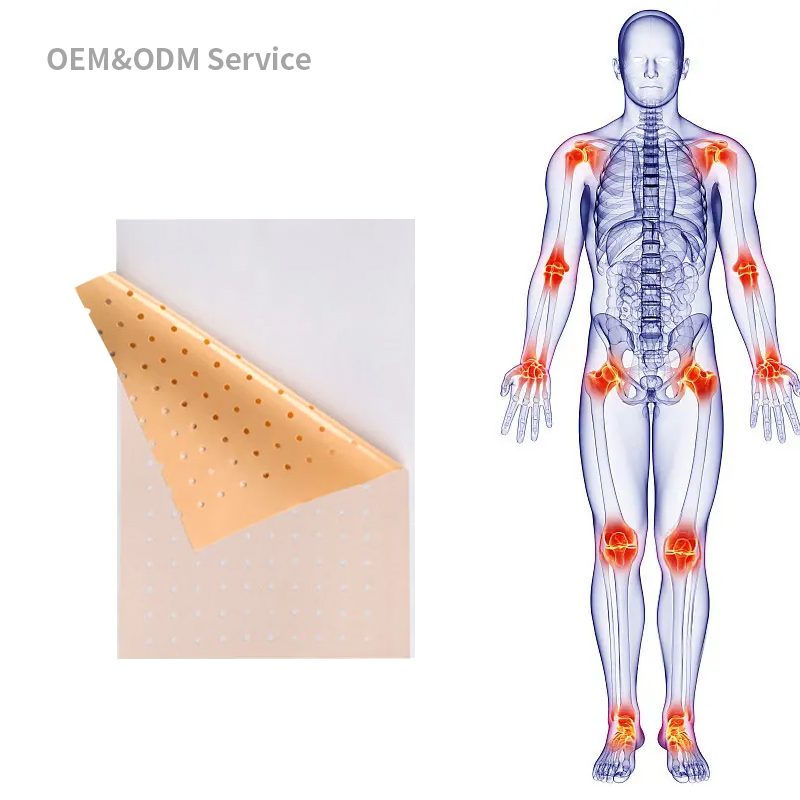Quality Control Measures in the Manufacturing of Customized Capsicum Plaster
In the realm of pharmaceutical and healthcare product manufacturing, the production of customized Capsicum Plaster demands rigorous quality control measures to ensure the safety, efficacy, and consistency of the final product. As a Capsicum Plaster manufacturer or OEM (Original Equipment Manufacturer) specializing in Custom Capsicum Plaster, it is imperative to adhere to a comprehensive set of quality assurance protocols. This article delves into the most common quality control measures implemented during the manufacturing process of customized Capsicum Plaster.
1. Raw Material Inspection
The first and foremost step in quality control is the rigorous inspection of raw materials. For Capsicum Plaster, this includes examining the quality and specifications of the base materials such as adhesives, ointment bases, and of course, capsicum extract. The capsicum extract, which is the active ingredient in Capsicum Plaster, must be sourced from reliable vendors and undergo thorough testing to ensure its purity, potency, and safety. Additionally, any additives or modifiers used in the formulation must also be carefully evaluated and tested.
2. Formulation Development and Validation
Once the raw materials are approved, the formulation development phase begins. This involves mixing and compounding the base materials with the capsicum extract and any other additives to achieve the desired properties and therapeutic effect. The formulation is then subjected to rigorous validation testing to ensure it meets all predetermined quality standards. This includes tests for viscosity, spreadability, adhesion, and stability, among others.
3. Process Control
During the manufacturing process, strict process control measures are implemented to ensure consistency and reproducibility. This includes controlling the manufacturing environment, such as temperature, humidity, and cleanliness, to minimize the risk of contamination or degradation of the product. Additionally, critical process parameters such as mixing time, temperature, and pressure are closely monitored and adjusted to ensure the product is manufactured according to the approved formulation and process.
4. In-Process Quality Checks
Throughout the manufacturing process, regular in-process quality checks are performed to monitor the quality of the product. This includes visual inspections, physical testing, and chemical analysis to ensure the product meets the required specifications and standards. Any deviations from the norm are immediately identified and corrective actions are taken to prevent any further issues.
5. Final Product Inspection and Testing
Once the manufacturing process is complete, the final product undergoes a rigorous inspection and testing process. This includes visual inspections to check for any defects or imperfections, as well as physical and chemical testing to ensure the product meets all quality standards. Additionally, the product's labeling and packaging are also inspected to ensure accuracy and compliance with regulatory requirements.
6. Feedback and Continuous Improvement
Quality control does not end with the final product inspection. Regular feedback from customers and end-users is collected and analyzed to identify any issues or areas for improvement. This feedback is then used to initiate corrective actions and implement continuous improvement measures to enhance the quality and performance of the product.
Conclusion
As a Capsicum Plaster manufacturer or OEM specializing in Custom Capsicum Plaster, implementing rigorous quality control measures is essential to ensure the safety, efficacy, and consistency of the final product. By adhering to a comprehensive set of quality assurance protocols, from raw material inspection to final product testing and continuous improvement, manufacturers can deliver a high-quality product that meets the needs and expectations of their customers.
Related Questions and Answers
Q1. What is the role of raw material inspection in Capsicum Plaster manufacturing?
A1. Raw material inspection ensures that the base materials and capsicum extract used in the manufacturing of Capsicum Plaster meet the required standards and specifications. This is crucial to ensure the safety, efficacy, and consistency of the final product.
Q2. How are process control measures implemented in Capsicum Plaster manufacturing?
A2. Process control measures are implemented by closely monitoring and adjusting critical process parameters such as mixing time, temperature, and pressure. Additionally, the manufacturing environment is controlled to minimize the risk of contamination or degradation of the product.
Q3. What are the steps involved in the final product inspection and testing of Capsicum Plaster?
A3. The final product inspection and testing of Capsicum Plaster involves visual inspections to check for defects or imperfections, as well as physical and chemical testing to ensure the product meets all quality standards. The labeling and packaging are also inspected for accuracy and compliance with regulatory requirements.
Q4. How does feedback and continuous improvement enhance the quality of Capsicum Plaster?
A4. Feedback from customers and end-users helps identify issues or areas for improvement in the Capsicum Plaster. This feedback is then used to initiate corrective actions and implement continuous improvement measures, leading to enhanced quality and performance of the product.






